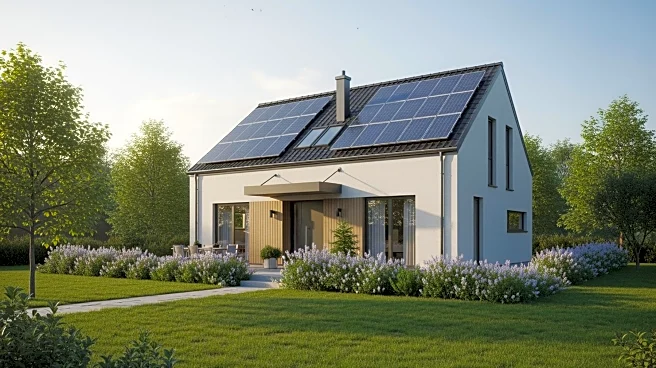What's Happening?
The Metis model, developed in partnership with Oxfordshire County Council, has successfully demonstrated a scalable approach to low-carbon retrofitting of homes. This model integrates solar panels, batteries,
and heat pumps into a seamless process, making these technologies accessible and affordable for residents. The initiative has shown significant results, with over 65% of residents opting into the solar and battery subscription model, leading to reduced energy costs and increased satisfaction. The project has proven that large-scale retrofitting is technically, financially, and socially viable, providing a blueprint for future implementations.
Why It's Important?
The success of the Metis model in Oxfordshire highlights the potential for widespread adoption of low-carbon technologies in residential areas. This approach not only reduces carbon emissions but also lowers energy costs for households, contributing to economic savings and environmental sustainability. The model addresses common barriers such as funding limitations and fragmented supply chains, offering a replicable solution that can be implemented across various regions. By demonstrating the feasibility of large-scale retrofitting, the Metis model supports the UK's goals for achieving Net Zero emissions and enhances energy security.
What's Next?
Following the success in Oxfordshire, the next step is to replicate the Metis model in other regions. Local authorities and housing providers are encouraged to adopt this approach to meet energy performance requirements and carbon targets. The focus will be on scaling up the deployment of these technologies, leveraging private finance, and ensuring that the benefits of retrofitting are accessible to a broader population. The transition from pilot projects to full-scale implementation is crucial for achieving national climate goals and fostering sustainable communities.










